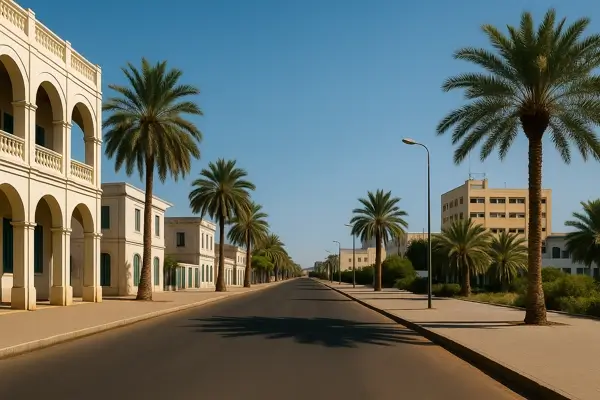
Strategic Location
Djibouti is located in the Horn of Africa, at the crossroads of Africa and the Middle East, making it a vital hub for international trade and shipping. The Bab el-Mandeb Strait, which connects the Red Sea to the Gulf of Aden, is a key maritime passage, and Djibouti controls access to this important waterway.
A French Legacy
Djibouti was a French colony until it gained independence in 1977. It was previously known as French Somaliland and Territory of the Afars and the Issas. The French influence is still seen in the country’s culture, language, and infrastructure.
The Only Country in Africa with French and Arabic as Official Languages
Djibouti is unique in Africa in that it has two official languages, French and Arabic, with Afar and Somali being widely spoken as well. Arabic reflects the country's Islamic heritage, while French reflects its colonial past.
A Land of Extreme Weather
Djibouti is one of the hottest and driest countries on Earth. It has some of the highest recorded temperatures in the world, regularly exceeding 40°C (104°F), and is known for its arid climate, with very little rainfall throughout the year.
Lake Assal
Djibouti is home to Lake Assal, which is the lowest point in Africa at 155 meters (509 feet) below sea level. The lake is also one of the saltiest bodies of water on Earth, almost ten times saltier than the ocean, creating a surreal landscape.
A Young Population
Djibouti has a young and growing population. The median age is around 26 years, and about half of the population is under the age of 25. This youthful demographic presents both opportunities and challenges for the country in terms of education, employment, and development.
A Key Military Base
Due to its strategic location, Djibouti hosts several foreign military bases, including those from the United States, France, China, and other countries. These bases play a significant role in regional security, counter-terrorism, and anti-piracy operations.
Rich Marine Life
Despite its small size, Djibouti has a rich marine environment, with coral reefs and abundant sea life. The Gulf of Tadjoura and Bab el-Mandeb Strait are well-known for whale sharks, which are frequently sighted in the warm waters, making it a popular destination for diving enthusiasts.
Cultural Diversity
Djibouti has a diverse mix of ethnic groups, including the Afars, Issas, and Arabs, each with its own traditions and languages. This diversity is reflected in the country’s festivals, customs, and cuisine.
Economic Focus on Services
Djibouti’s economy is primarily service-based, with a strong focus on port services, logistics, and trade. The country’s ports are some of the busiest in the region, facilitating trade not only for Djibouti but also for neighboring countries like Ethiopia, which is landlocked.
